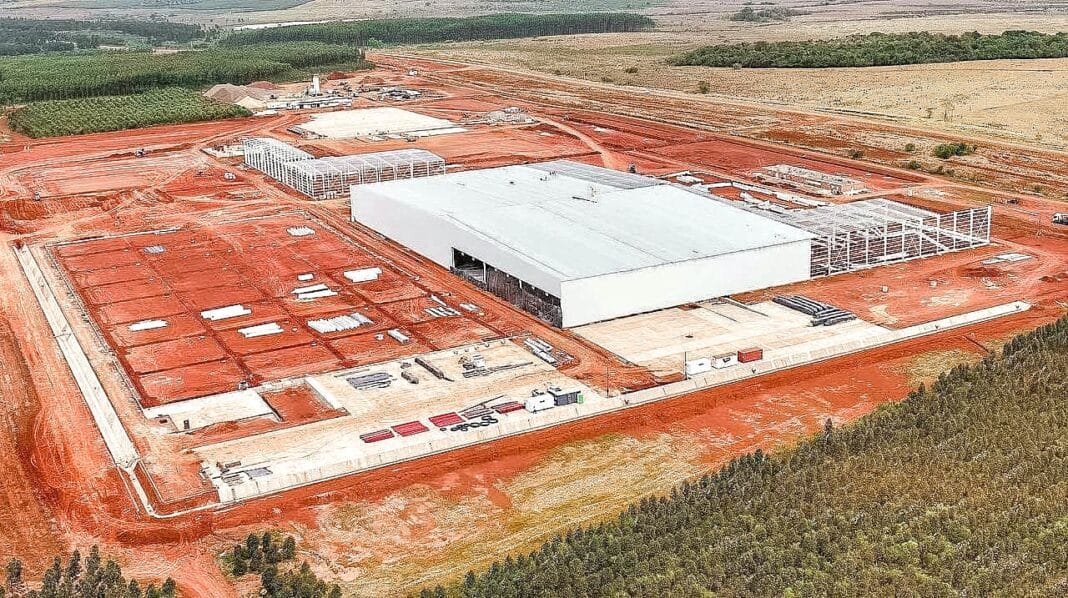In the lead-up to Christmas, Acon Timber in Virasoro, Corrientes, Argentina, started production on its new sawmill, which is huge by local standards.
Stage 1 alone will process 500,000 cubic metres of plantation pine a year – as part of a total project that will eventually cost more than US $250m.
The new mill will depend on supply from plantations owned by other private companies and individuals utilising mainly Pinus taeda and Pinus elliottii.
A Buenos Aires source told Wood Central the sawmill would contribute to absorbing an abundance of pine sawlogs in the Corrientes province.
Acon is owned by the HS Timber Group, a long-established wood processing company of Austrian origin with strong roots in central and eastern Europe.
HS, a joint venture with Belgian company Forestcape, employs a staff of more than 2700 in Austria, Germany, Romania and Finland.
The group invested over US $100m in the Virasoro sawmill, providing 280 direct jobs. The total employment impact, including the upstream and downstream sectors, is estimated at more than 700.
The plant is designed to process small-diameter pine logs sourced exclusively in the region from sustainably managed forests.
All the sawn timber is dried, and by-products are pelletised or sold to local biomass plants. The entire product range is designed for export.
As in all mills in the HS Timber Group, the emphasis is on the comprehensive use of raw materials.
By the principles of the circular economy, 100% of the thermal energy required is generated in the plant as green heat. The biomass either originates from timber processing or is locally sourced.

Operating under the arch of Acon Timber, the HS Timber Group will contribute its industry expertise in wood processing and sales. At the same time, Belgian partner Forestcape has many years of experience with sustainable forest management in the region.
A spokesman for Acon Timber said its production chain was governed by the ‘zero waste’ principle – 100% of raw material is utilised in the production process.
“Our basic principle is purchasing wood exclusively from sustainably managed plantations,” he said.
“Our sources of supply are strictly audited at regular intervals. Deliveries are traced back to their origin, providing a transparent chain of custody connected directly to the Argentine Forest Certification System (CERFOAR) under the PEFC certification model.
With 1.3 million hectares of plantation pine planted, of which 100,000 ha are in Patagonia, Argentine aims to reach 2 million hectares of plantations by 2030.
The country produces 10 million tonnes of wood annually (54% pines, 32% eucalypt, 11% salix babylonica willow and 3% other species). Between 90-95% of wood exports are from plantations, the rest from native forests.
Editor’s note: The forestry sector in Argentina has great potential. The country’s geography, from north to south, encompasses 4000 km with various climates and land quality. This reliable environment allows for cultivating different tree species at high growth rates.
The climate varies, and most areas are quite temperate. The country also enjoys short harvest periods for the most important species. This has allowed the industry to become more competitive and continue its high growth rates.
Argentina also provides ample investment opportunities. The country has a planted forest area similar to Uruguay’s but in a territory 15 times larger, with thousands of hectares suitable for developing new forestry projects.
The Argentine forestry sector has not developed significantly over the past 15 years due to policy-based restrictions, discouraging investments and leading the country into economic crises.
However, a recent policy change and the beginning of a new federal government have changed this, and Argentina is likely to become an attractive location for new forestry investments tied to increased timber exports.
Argentina’s controversial and recently inaugurated president, Javier Milei, has unveiled a sweeping emergency decree to deregulate the country’s economy rapidly. The decree includes 300 measures, striking down major regulations covering the housing rental market, export customs policies and land ownership.
Milei’s governing program includes unheard-of political initiatives, such as reducing the fiscal budget deficit to zero at the start of his administration, closing the central bank and instituting a free-currency circulation system.
Australia has welcomed Argentina’s continued commitment to a multilateral trading system and enjoys a close and productive relationship on many elements of the World Trade Organisation agenda.






